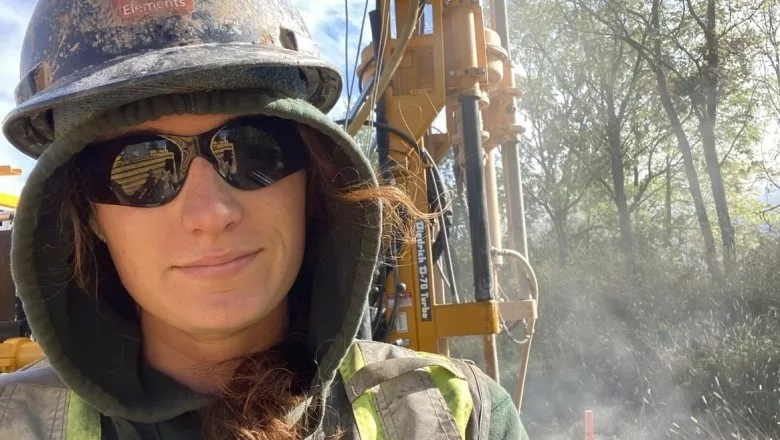Trading University for Trades: A Gen Z Driller Perspective
Student Paths after High School as Varied as the Students

Successful people blend skill, education and ability into a career that works for them, whether that means drilling blastholes or structural engineering. Guest columnist Rachel Bourne chose drilling when no one she knew even worked construction. Source: Getty Images
As a woman born and raised in the suburbs of southern Ontario, Canada, I saw an environment full of white-collar career options and expectations. Young minds like mine often felt pushed into pursuing university after our public school experiences, regardless of the fit. This path could prove difficult, depending on your learning styles or teachers — even the student’s personal life. This was my experience and it made me the driller I am today.
First, a quick word on Canada’s education system. We have high schools, of course, just like the United States and many other countries. After high school, students usually choose between college and university. “College” to us means more hands-on, practical and vocational schools (like my alma mater Fleming College). College grads get a certificate or diploma. “University” students graduate with a bachelor or higher degree, and often find work in more white-collar fields. This differs a bit from Americans, who often mean the same thing whichever word they use.
Students in “higher learning” classes have to be persistent to achieve high grades. Society can make high school students not in these “university-based credit” classes — and, thus, not on the path to university — feel not smart enough. I’ve seen many students in “college-based credit” classes who seemed to lack the drive to succeed in school. You felt like you weren’t “good” enough for university, so what’s the point? Thankfully, I see more support now for students whether they choose college, university or even trade schools.
Like many students, I needed to take a certain number of these university prep classes in high school, but struggled through them. My family, thankfully, offered support and helped to find me tutoring where I needed it, but I know I would not have succeeded without their motivation. As life for middle- and lower-class families in Ontario becomes more expensive and stressful, that support may not be an option. I believe this can be the downfall for many students.
For my grade 12 year, I found a way to take different courses, ones considered “mixed.” These courses allowed for more hands-on learning, but I could still use them in university applications if I chose to. I found out about Fleming’s Drilling and Blasting program through one of these mixed-credit courses. A light went off and everything just started making sense. I had no idea where it would lead or what drilling even was. It promised 2 years of hands-on schooling with a 90% employment rate and high starting salaries. This was exactly what I wanted to hear as a 17 year old. It was different, something no one else was doing. No one else I knew even talked about drilling, especially the women around me.
At Fleming, I learned about drilling theory and the different industry options available once I had my blasting certificate and drilling diploma. When I started, I had no connections to the drilling industry and still had a lot of growing up to do. The college gave me the tools and connections to get started. From there, it was up to me (and my work ethic).
It seems a little ridiculous, but I never imagined the hard work drillers endure every day until I saw it for myself. I didn’t know what blue-collar workers experienced. I had never known someone working a construction job. I was a young, naive 18-year-old girl going to experience college life. My goal? To earn my diploma and certificate, and hopefully have a job in my field by age 19. For me, drilling did exactly that. I will continue to promote the drilling industry for all generations to come.Looking for a reprint of this article?
From high-res PDFs to custom plaques, order your copy today!





